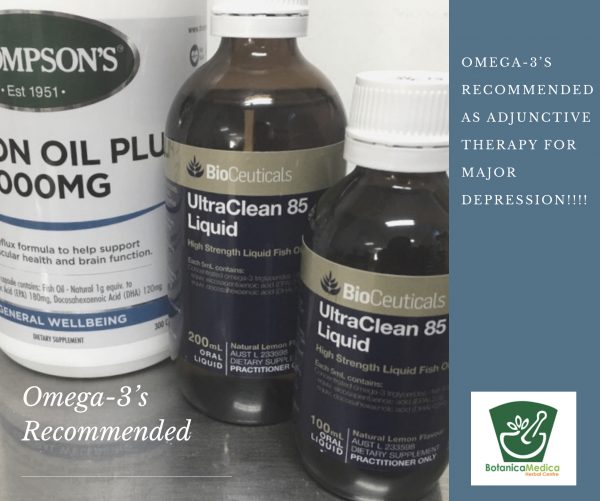Omega-3s Recommended as Adjunctive Therapy for Major Depression
A clinical practice guideline from the International Society for Nutritional Psychiatry Research (ISNPR) recommends omega-3 polyunsaturated fatty acids (PUFAs) as adjunctive therapy for major depressive disorder (MDD).
The value of omega-3 polyunsaturated fatty acids in depression is “overlooked,” even though accumulating evidence supports it. This therapy “needs to be on the radar” of physicians, Kuan-Pin Su, MD, PhD, chief of the Department of General Psychiatry, China Medical University, Taichung, Taiwan, told Medscape Medical News.
Su, a founding member of the International Society for Nutritional Psychiatry Research and a strong proponent of “nutritional psychiatry,” organized a subcommittee of the International Society for Nutritional Psychiatry Research and invited the top 10 most-cited authors in the use of omega-3 polyunsaturated fatty acids for depression to review the literature and develop the practice guideline on appropriate prescribing of omega-3 fatty acids for major depressive disorder.
The consensus guideline was published online September 3 in Psychotherapy and Psychosomatics.
Prophylaxis, Maintenance
The guideline emphasizes the importance of accurate clinical diagnosis and measurement-based psychopathologic assessments in the therapeutic setting when recommending omega-3 polyunsaturated fatty acids for depression.
The guideline notes that there is a growing body of evidence demonstrating the efficacy of n-3 polyunsaturated fatty acids as an adjunctive treatment for major depressive disorder. The guideline authors also note that omega-3s are safe and effective for accelerating the effect of antidepressants at treatment initiation and for augmenting existing antidepressant therapy when efficacy is inadequate.
With respect to formulation and dosage, the guideline recommends pure eicosapentaenoic acid (EPA) or a combination of EPA and docosahexaenoic acid, with net EPA starting from at least 1 g/day up to 2 g/day for at least 8 weeks as adjunctive treatment. Importantly, the authors note that the quality of n-3 polyunsaturated fatty acids may affect therapeutic activity.
The guideline also endorses n-3 polyunsaturated fatty acids as a potential prophylactic treatment for high-risk populations, in addition to standard medical care. The duration of acute n-3 polyunsaturated fatty acids treatment may be extended to include maintenance treatment to prevent recurrence.
Potential side effects, such as gastrointestinal and dermatologic conditions, should be monitored, and comprehensive metabolic panels should be obtained during treatment, the guideline authors note.
They call for further research into personalizing the clinical application of n-3 polyunsaturated fatty acids in subgroups of patients with major depressive disorder whose omega-3 index is low or who have high levels of inflammatory markers.
The panel acknowledges in the guideline that there is ongoing debate on the benefits of omega-3 polyunsaturated fatty acids for major depressive disorder. Meta-analyses have shown “only small but statistically significant effects,” the authors write.
They note that in three meta-analyses, the estimated effect sizes (standardized mean differences between n-3 polyunsaturated fatty acids and placebo) ranged from 0.23 to 0.56, with wide confidence intervals (CIs).
At Botanica Medica our Naturopaths are well aware of the importance of exercise, a good diet and the effect it can have on your life both physically and mentally. They come across lots of interesting studies and are always updating their knowledge. If you would like to make an appointment with one of our Naturopaths call Botanica Medica on 8271-1827 today. They are only to happy to share the knowledge they have gained through their studies and patient outcomes, and get you feeling better. Botanica Medica is located at 97 Glen Osmond Road, Eastwood and appointments are available Monday to Saturday including some after hours.
References
Omega-3s Recommended as Adjunctive Therapy for Major Depression Megan Brooks
Kuan-Pin Su, MD, PhD, chief of the Department of General Psychiatry, China Medical University, Taichung, Taiwan, told Medscape Medical News.
The consensus guideline was published online September 3 in Psychotherapy and Psychosomatics.
Artwork created in Canva


Recent Comments